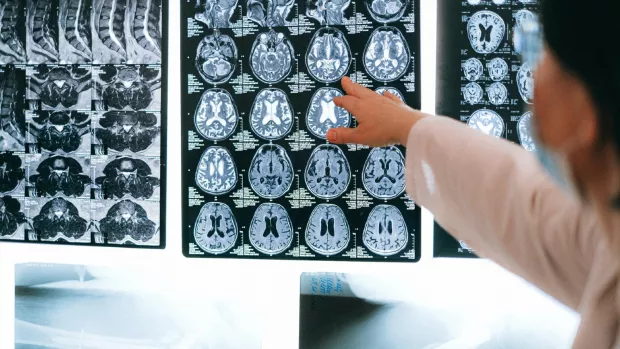Risk factors for conditions of the heart and blood vessels in people with MS

- Lead researcher:
- Dr Benjamin Buckley
- Based at:
- Liverpool John Moores University
- MS Society funding:
- £49,975.73
- Status:
- Starting November 2023
People with MS have a higher risk of heart and blood vessel conditions compared to people that don’t have MS. For example, they have a higher risk of having a heart attack or a stroke.
But we don’t yet know what risk factors contribute to someone with MS being more likely to have these conditions.
About the project
The researchers will use a global database of over 265,000 people with MS and the UK MS Register to investigate three questions:
- How often do conditions such as heart attacks, abnormal heart rhythms, heart failure and stroke happen in people with MS? And what are risk factors that make it more likely a person with MS experiences these conditions?
- What role do these risk factors have on someone’s quality of life, mental health and ability to perform activities of daily living?
- Does taking a vitamin D supplement make it less likely for someone to experience these conditions?
Using the results from the study, the researchers will develop rehabilitation programme for better heart and blood vessel health that is specifically tailored to people with MS. It’ll give guidance on what people with MS can do to reduce their risk of these conditions based on the results of the study.
How will it help people with MS?
This project will improve our understanding of conditions of the heart and blood vessels in people with MS. And it will help us understand why some people with MS are at higher risk of developing these conditions than others.
It’ll also help us understand if vitamin D supplements may reduce the likelihood of developing these conditions.
And in the future, the researcher wants to test if the rehabilitation programme they develop based on the results of the study can reduce events like strokes and heart attacks. And if it can improve quality of life and daily living.
If successful, the rehabilitation programme could become part of routine care for people with MS.




